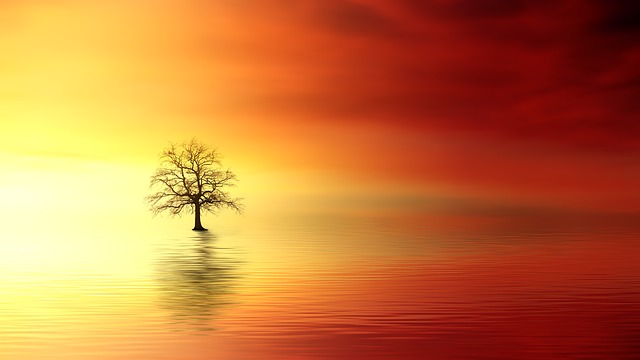This article tries to reveal the ruling on usage of intoxicant in general and drinking alcohol in Hinduism and Islam. The ruling in Islam on usage of intoxicant in general and drinking wine is prohibition in common and normal situation without any doubt or dispute. This ruling of Islam is a well-known in the world; Muslims and non-Muslims knows it very well. As for in Hinduism, the ruling on usage of intoxicant and drinking wine is vague, unclear, and may even tend to the permission more than to prohibition.
The use of the word intoxicant comes to consider that narcotic substances in the past were numbered and limited, but the forms and narcotic objects in the present era have multiplied and diversified but the rule of Islam on intoxicant is based on the quality or property of intoxication and not on the forms of intoxicants. In Islam, all sorts of intoxicants are prohibited because of intoxication, regardless of its shapes and causes.
We will present at first the ruling on the subject in Hinduism from the Hindu scriptures and holy books.
Alcohol in Hinduism
The question here is: Is drinking alcohol prohibited in Hinduism? The answer is; there is no such prohibition on drinking alcohol in Hinduism. Even, some herbal wines have been considered as good medicine when taken in right quantity. Therefore, Hinduism does not prohibit anyone from drinking alcohol. But it ensures that the person uses it in limited quantity avoiding its side effects.(1)
On the other hand, there are other opinions in Hinduism that say it is forbidden. Therefore, it can be said that the ruling on drinking alcohol in Hinduism has different and contradictory opinions. Even the Hindu scriptures and sacred texts in Hinduism have both; prohibition and permission.
Prohibition of Alcohol in Hinduism
Some Hindu scriptures even made drinking wine one of the major sins.
Chandogya Upanishad says: “One of the five major sins in Hinduism, or Pancha-mahapatakas ‘A man who steals gold, who drinks spirits, who dishonors his Guru’s bed, who kills a Brahman, these are the four and as a fifth he who associates with them.”(2)
Alcohol in Mahabharata
In the Mahabharata, Shukracharya due to his alcoholism caused Kacha to be killed, ground up and mixed in his alcohol by the Asuras. After going through an ordeal of having to teach Kacha the secret Sanjivani knowledge, Shukracharya came to his senses, and pronounced these sayings on drinking:
यो ब्राह्मणो अद्य प्रभृतीह कश्चिन्मोहात्सुरां पास्यति मन्दबुद्धिः।
अपेतधर्मो ब्रह्महा चैव स स्यादस्मिँल्लोके गर्हितः स्यात्परे च ॥
“Whoever foolish brahmana henceforth drinks alcohol out of delusion, he should be considered as devoid of dharma, a killer of Brahmans, and should be forever despised in this world and the next.”
“At the command of Ahuka, of Janarddana, of Rama, and of high-souled Vabhru, it was, again, proclaimed throughout the city, that from that day, among all the Vrishnis and the Andhakas no one should manufacture wines and intoxicating spirits of any kind, and that whoever would secretly manufacture wines and spirits should be impaled alive with all his kinsmen.
Through fear of the king, and knowing that it was the command of Rama also of unimpeachable deeds, all the citizens bound themselves by a rule and abstained from manufacturing wines and spirits.”(3)
This text denotes two important points; 1) Alcohol existed at that time. 2) the production of alcohol was prohibited by the king. So, the production and usage were forbidden in Hinduism. However, there are many other texts in Vedas, Upanishads and Puranas that show that usage of alcohol is permissible.
A Hindu writer says:
Hinduism never issues a list for its followers, but explains the difference between right and wrong. Therefore, the responsibility of the way selection depends entirely on the individual. Just gives some recommendations.(4)
Soma Liquor in Vedas
Atharvaveda describes the Heaven and says that there are rivers of wines flowing in Paradise.
Atharva Veda says: “Full lakes of butter with their banks of honey, flowing with wine, and milk and curds and water abundant with their overflow of sweetness, these streams shall reach thee in the world of Svarga, whole lakes with lotus blossom shall approach thee.” (5)
Yajur Veda mentions Nectar Soma and says:
“Soma with Wine, pressed; filtered for the banquet, cleanses priest, noble, brilliancy and vigor. God, with the bright give Deities enjoyment: give food with flavor to the Sacrificer.”(6)
In addition, Yajur Veda says: “The Agni, Sarasvatî, and Indra have drunk the Surâ and Soma draughts.”(7)
Dr. Babasaheb Ambedkar wrote in his book- Riddles in Hinduism, “The ancient Aryans were also a race of drunkards. Wine formed a most essential part of their religion. The Vedic Gods drank wine. The divine wine was called Soma. Since the Gods of the Aryans drank wine the Aryans had no scruples in the matter of drinking. Indeed to drink was a part of an Aryan’s religious duty… Who were denied Soma drank Sura which was ordinary, unconsecrated wine sold in the market. Not only the male Aryans were addicted to drinking but the females also indulged in drinking.(8)
In addition, Soma drink is very common in Vedic literature that has been regarded as an auspicious drink used in Hindu rituals. The question is: Is soma a wine or alcohol? The coming lines will explore the answer.
Is Soma a Sort of Intoxicant?
The Sanskrit and English Dictionary mention the word सोमा Soma and its meaning as follows.
“सोम soma, juice, extract, especially the juice of the Soma plant, also the Soma plant itself (said to be the climbing plant Sarcostema Viminalis or Asclepias Acida, the stalks of which were pressed between stones by the priests, then sprinkled with water, and purified in a strainer; whence the acid juice poured into jars or larger vessels; after which it was mixed with clarified butter, flour, made to ferment, and then offered in libations to the gods [in this respect corresponding with the ritual of the Iranian Avesta] or was drunk by the Brahmans, by both of whom its exhilarating effect was supposed to be prized; it was collected by moonlight on certain mountains; it is sometimes described as having been brought from the sky by a falcon and guarded by the Gandharvas; it is personified as one of the most important of Vedic gods, to whose praise all the 114 hymns of the 9th book of the Rig Veda, besides 6 in other books and the whole Sama Veda are dedicated; in post-Vedic mythology and even in a few of the latest hymns of the Rig Veda [although not in the whole of the 9th book], a drug of supposed magical properties.”(9)
Homa in Iran and Soma in India
In the quote, we will draw the attention to the important phrases, “acid juice” “made to ferment” “exhilarating effect” “a drug of supposed magical properties” “Corresponding with the ritual of the Iranian Avesta”. The first four phrases are descriptions to Soma; those qualities are the same of the wine or alcohol. And the last phrase gives evidence that the Aryans are the ancient Iranians who invaded India and brought their tradition of Soma drink which is called Homa amongst the Zoroastrians, only the letter “H” has been altered with “S” as happened in the word Indus and Hindus.
This is about Soma in the Vedas, the most authentic authority on the Hindu faith and practice that are final proof and evidence without controversy and discussion for Hindus. As for other and later religious texts such as Upanishads and Puranas, there is a great mention and discussion of the subject of Soma. We are going to quote some of them here.
Permission of Intoxicant in Hindu Scriptures
Flesh and wine before the start of worship to Shiva, as Srimad Bhagavatam says: “When initiated into worship of Lord Shiva, they prefer to live on wine, flesh and other such things.”(10)
Mahabharata says: “The gods, uniting with the Asuras, and making the Mandara Mountain their pole, churned the waters of the ocean and obtained the wine called Varun.”(11)
Moreover, Mahabharata says: “Behold now, O companion of the Lord of the celestials, that abode, made entirely of gold, and full of the wine called Varuni. Indeed, having obtained that wine, the gods acquired their god-heads.”(12)
Valmiki-Ramayana mentions the wine and says: “Like unto Purandara with Sachi, he took Sita by the hand, made her sit and drink the wine distilled in the province of Mira. And in no time the servants brought for him well-cooked meat and various fruits. Being inebriate the beautiful Apsaras, well-skilled in the art of singing and dancing, began to dance before Rama.”(13)
It was mentioned in Valmiki-Ramayana that Sita vowed to worship offering a hundred pots of wine. The scripture says in this connection:
“Having come near the middle of the Kalindi, Sita prayed unto her, saying, ‘Hail to thee, O goddess! I cross thee. If my husband can successfully perform his vow, I will worship thee with a thousand cows and a hundred vessels of wine.”(14)
Mahabharata narrates that Hanuman was intoxicated until his eyes were red. The scripture says: “The powerful Hanuman, however, opening his eyes partially looked at him (Bhima) with disregard, with eyes reddened with intoxication.”(15)
In Mahabharata, meat and wine both have been mentioned together.
“And Krishna gave unto each of the illustrious sons of Pandu numerous female slaves, and gems and robes. And then the nuptial festival set in between the families of the Matsya king and the Pandavas. And then conchs and cymbals and horns and drums and other musical instruments appointed by the Pandavas, began to play in the palace of Virata. And deer of various kinds and clean animals by hundreds were slain. And wines of various kinds and intoxicating juices of trees were profusely collected.”(16)
Hindu God Krishna and Liquor
Hindu god, Krishna has been referred in Puranas as fond of liquor.
Padma Purana says: “Then the two (Krishna and Radha), O Brahmana, being tired due to many pastimes proper for the times in the groves endowed with vernal breezes on all sides, resort, with their attendants, to the root of a tree, and sitting on a divine seat, drank liquor.”(17)
“Once Balarama, the highly blessed Revati and other excellent ladies were seated in the Raivata garden and engaged in drinking wine.”(18)
Hindu Goddess; Kali a Lover of Wine
Kali is a Hindu goddess who is seen killing demons in her raged attitude. Mahabharata depicts Kali to be fond of wine, meat and animal sacrifice.
“Thy eternal abode is on Vindhya–that foremost of mountains. O Kali, O Kali, thou art the great Kali, ever fond of wine and meat and animal sacrifice.”(19)
Shiv-Purana says Kali used to drink grape wine before killing demons.
“Going to the battle ground, the goddess Kali roared like a lion. On hearing that the Danavas fainted. She laughed boisterously again and again boding ill to the Asuras. She drank the distilled grape-wine and danced on the battle ground. The manifestations of Durga viz Ugradamstra (one with fierce fangs) Ugradanda (one with fierce baton) and Kotavi (the naked) danced on the battle ground and drank wine.”(20)
Hindu religious scriptures also mention Hindu ascetics and worshipers as alcoholics, beside the gods and deities.
Muni Dattatreya the son of the great sage Atri, was an alcoholic according to scriptures.
Padma Purana says: “Atri’s son Dattatreya, the high-souled-Brahmana, the great sage, with his eyes red due to (having drunk) spirituous liquor, was sporting with a woman. The virtuous one, intoxicated by wine, having seated a young, auspicious woman, best of all women (Lakshmi), on his lap, sang, danced and heavily drank liquor.” (21)
Conclusion
After looking into the mentioned evidence and proofs, it becomes very clear that Hinduism not only allows drinking alcohol, rather, drinking alcohol was common and widespread practice in Hindu civilization. Drinking alcohol was one of the habits of the gods and spiritual leaders. Moreover, drinking alcohol remained an important part of the offerings and sacrifices for the various rituals in Hinduism. Even today we find Hindu writers and thinkers skeptical and hesitant about the ruling on drinking alcohol.
On the other hand, Islam is completely clear about alcohol, wine, drugs, narcotics, intoxicant and everything that leads to the disruption of the mind, thought, or feeling, temporarily or permanently, is forbidden in normal cases, as we will address in the next part of this article.
According to the belief of Muslims the Noble Qur’an is a revelation from Allah the Almighty. The ruling on the prohibition of wine is clearly explained in Noble Qur’an. One of the characteristics of divine ruling in Islam is that if it comes, there is no place or room for conflict or dispute for any Muslim. The ruling on wine was not given to the human mind, which is in general a field of acceptation and denial. In fact, the prohibition of alcohol in Islam is evidence that it is a religion revealed from Allah the Almighty.
To read the last part of this article, please, click here.
____________________
(1) http://bit.ly/30jfFiF .
(2) Chandogya Upanishad, 5.10.9.
(3) Mahabharata Mausala Parva, Section I.
(5) Atharva Veda 4.34.6.
(6) Yajur Veda 19.5.
(7) Yajur Veda 21.60.
(8) DR. BABASAHEB AMBEDKAR WRITINGS AND SPEECHES VOL. 4, by VASANT MOON, Dr. Ambedkar Foundation: January, 2014 p.109.
(9) A Sanskrit -English Dictionary, by Sir Monier Monier-Williams, Oxford University Press, Amen house, London. 1956, 1960, p. 1249.
(10) Srimad Bhagavatam, 4.2.28-29.
(11) Mahabharata, Udyoga Parva 5, Section 102.
(12) Mahabharata, Udyoga Parva 5, Section 98.
(13) Valmiki-Ramayana, Uttarakhanda 7, Sarga 42, Verses 18-23.
(14) Valmiki-Ramayana, Ayodhya Kanda 2, Sarga 55, verses 19-20.
(15) Mahabharata, Vana Parva 3, Section 145, Verse 86.
(16) Mahabharata, Virata Parva 4, Section 72, Verses 19-28
(17) Padma Purana, V., 89, 53-59a
(18) Brahma Purana, 100.11-14
(19) Mahabharata, Virata Parva 4, Section 6, Verse 18
(20) Shiva Purana, Rudra Samhita 2, Yuddha Khanda section 5, Ch 38, verses 1-3
(21) Padma Purana II.103.110-113
[opic_orginalurl]


